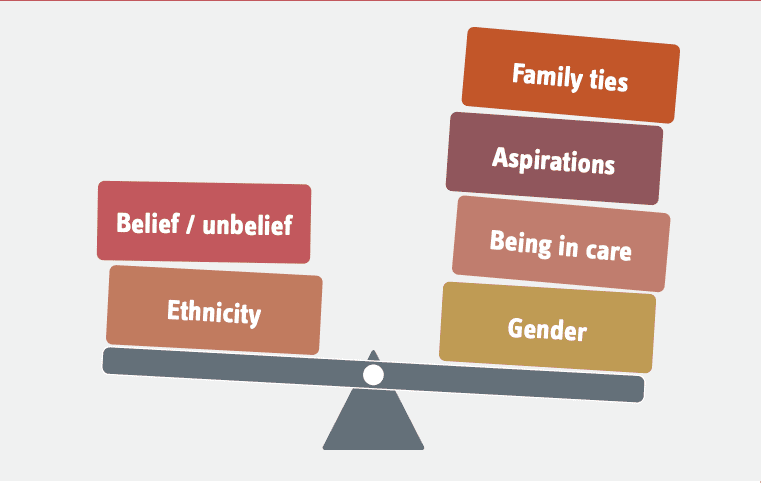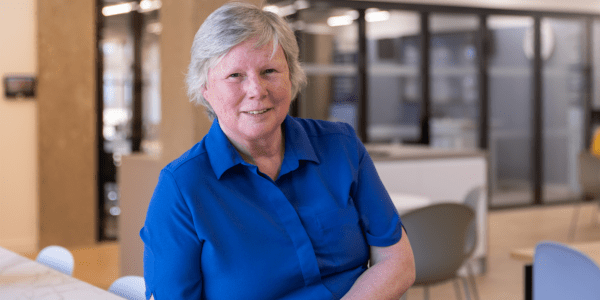

27/02/24
3 min read
Research can help us to understand the multifaceted needs of children and their identities and improve experiences of the care system.
Expressions of Self, a recent Nuffield Foundation-funded report, spotlights the care experiences of minoritised children who are overrepresented in care populations and explores how they understand their identities.
What did this research aim to do?
Led by Dr Sariya Cheruvallil-Contractor, Dr Allison Halford and Dr Kusha Anand from Coventry University, the study revealed the profound human challenges faced by children in care. Encounters with the system are characterised by uncertainty and impermanence as children navigate the fundamental human desires for belonging, stability, safety, and recognition.
The research shares the narratives of some of the young people caught up in an unsuitable and sometimes, unwelcoming care system. It highlights how children’s sense of self can shape and be shaped by dimensions such as religion, cultural heritage, community ties and more.
By taking an intersectional approach, the study enabled the participating children and young people to express the complexities of their individual, evolving identities and social dynamics. It emphasises that the lives of minoritised children cannot be distilled into a singular narrative or viewed through a single lens, which can be a common mistake.
Amplifying the diverse perspectives of care-experienced youth and actively incorporating them into the research process allowed Sariya and her colleagues to develop a new model – influx identity – to inform research and practice. Read more about the concept in the article the team wrote for us.

What do the findings mean for the family justice system?
This research is part of the wider collaborative work of the Foundation and its centre, the Nuffield Family Justice Observatory (NFJO), aimed at improving the experiences and outcomes of children who find themselves in very challenging circumstances.
We do this by combining the Foundation’s focus on supporting high-quality research with the NFJO’s expertise in identifying evidence gaps and translating research into meaningful and actionable change. The study epitomises our desire to deliver street-level social science – that is to say, bridging academic research with the realities of individuals and communities in their everyday lives.
We are at an inflexion point for children’s social care in England. The new statutory national framework for children’s social care significantly shifts how the state and its actors support and care for some of society’s most vulnerable (and as research shows, most resilient) children.
The implications of the influx identity model Sariya and her colleagues developed extend beyond practice to the realm of family justice. It is relevant for Children and Family Court Advisory and Support Service (Cafcass) officers, lawyers and judges, who have a legal duty to duly consider a child’s background, culture, ethnicity and religion when making welfare decisions for them.
Within this model, we consider the interplay of changing socio-ethnic-religious factors stemming from children’s biological heritage, their care experience and their agency in determining how they want to be perceived.Dr Sariya Cheruvallil-Contractor
A holistic, culturally sensitive approach to safeguarding children in care
The author’s report calls for more empathy, mindfulness and compassion throughout a child’s journey into, through and on leaving care. It strongly promotes the need to keep children together in loving, stable homes and to replicate this approach in caring for children who cannot grow up in the same household as their families. This includes an emphasis on keeping children connected to the network of family and friends.
This recommendation is consistent with much of the other research the Foundation has supported, including reports by Dr Samantha Parsons and Professor Rick Hood. It is also repeated through our frequent discussions with stakeholders, including social workers, campaigners and, most importantly, children in care and care leavers themselves.
By drawing on the wide-ranging research base funded by the Nuffield Foundation, the Nuffield Family Justice Observatory, practitioners and policymakers can address problems in the family justice system. The NFJO supports the development of effective evidence-based interventions and reforms to the wider system to improve the response by key decision-makers required by these children and the opportunities they have.
Monthly updates straight to your inbox.
More on the findings, from the researchers










































